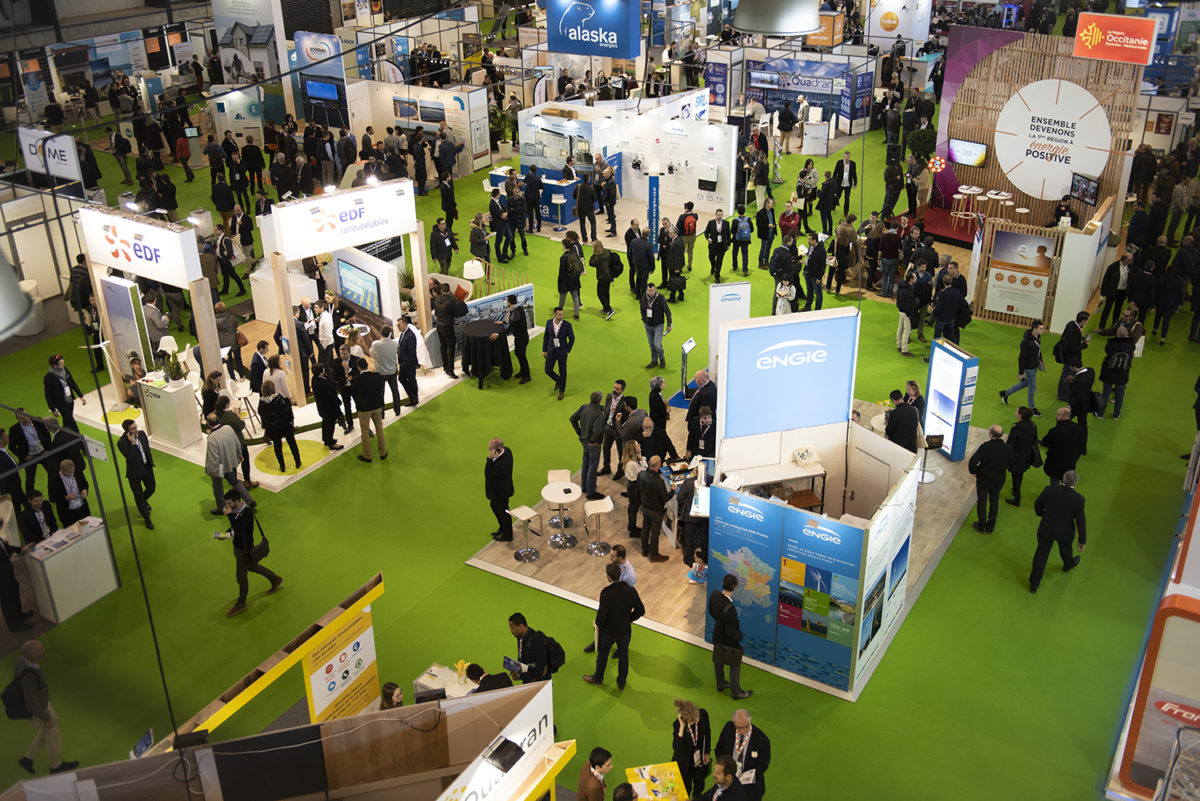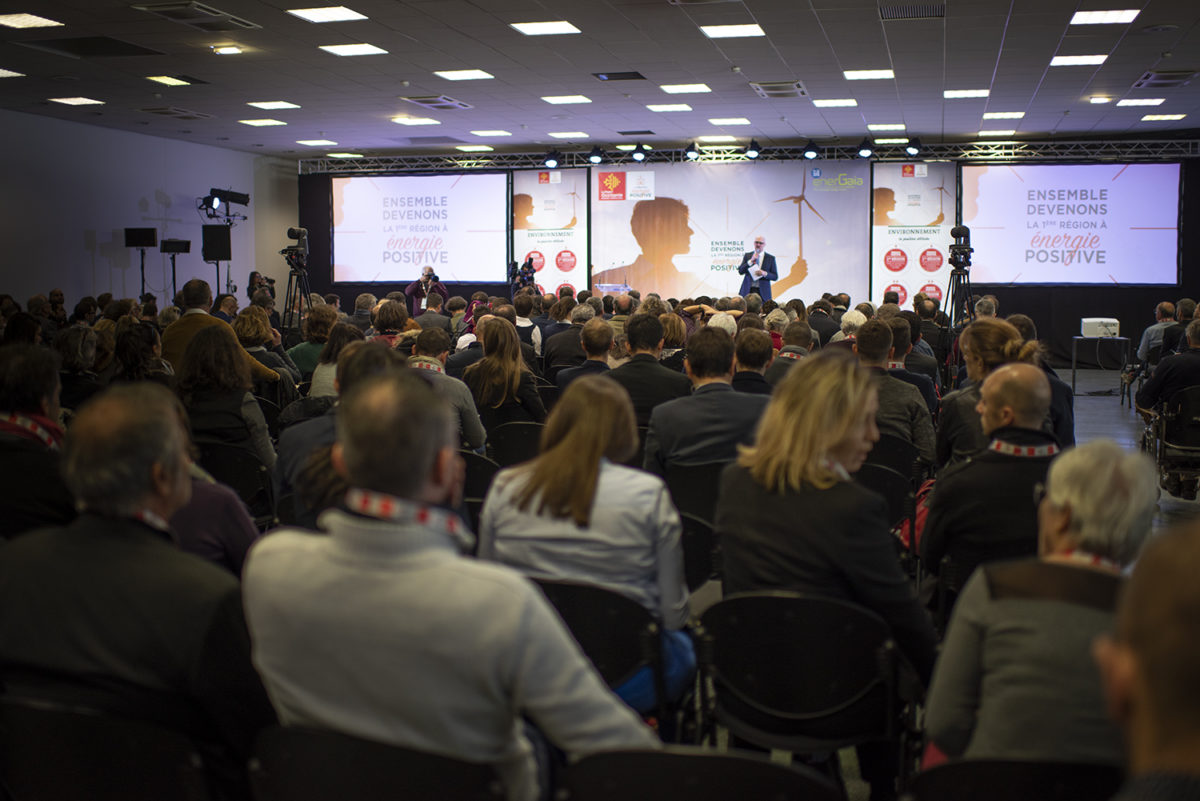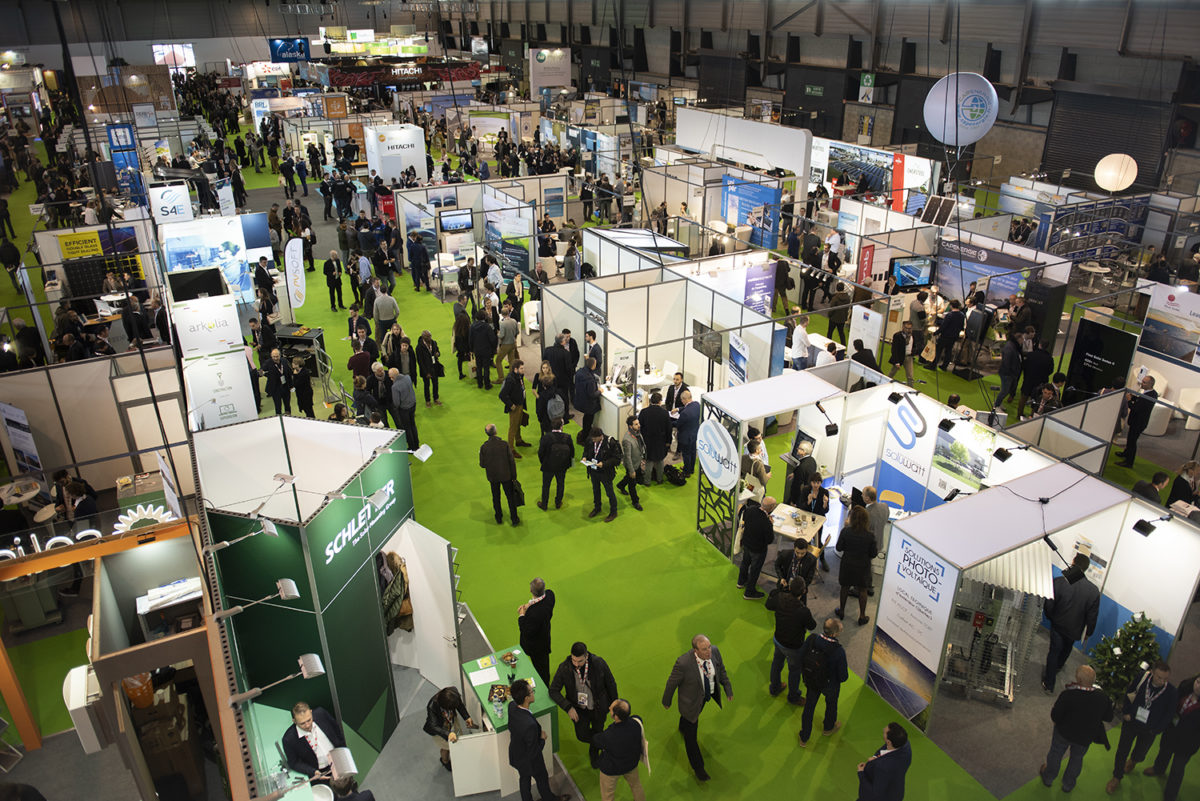France’s leading renewable energy event had two important missions this year: (i) build on the success of the 2017 event by further growing the presence of the solar PV industry; and (ii) provide a clear roadmap for solar, and other renewables, to transform the country’s energy landscape, which is still heavily dominated by nuclear.
Both days of the event, which took place in Montpellier, southern France, on December 11 and 12, not only achieved those two goals, but also showed how confidence in solar, in particular, has grown, despite recent developments in French politics.

- A growing event, with solar at its core
The majority of France’s big energy players attended the 12th EnerGaïa, including EDF, Engie and Direct Energie through its RE unit Quadran. While they have activities spanning across the entire renewables spectrum, pv magazine’s conversations with other small and middle-sized companies clearly showed solar’s growing role as the core pillar of the country’s energy transition.
This was also underscored in the increasing presence of small solar companies, including cable providers, crowdfunding platforms, monitoring system developers, consultants specializing in project planning and local legislation, insurance companies, PV product distributors, mounting systems manufacturers and suppliers of BIPV applications of all kinds.
Talking to pv magazine, trade fair manager for Montpellier Events Matthieu Robin said this year's event saw its surfaces, exhibitors and atendees all increase significantly compared to 2017. While solar and wind were the most represented energies, all of the renewable sectors were present.
Overall, exhibitor numbers were said to have grown 35% to 162 this year, with 73 new faces on the scene, while around 5,500 visitors were expected to attend. This reflects a growing interest in France’s energy transition, said Robin.
He added that the once regional show has evolved to attract a much more national and international audience, with the presence of 18 foreign companies at the 2018 show. There are plans, said Robin, to have dedicated country spaces on the exhibition floor in 2019.
He also hopes that the event, which was officially backed by the French Ministry of the Ecological and Solidary Transition (MTES) for the first time this year, will increase its social commitment.
“We don’t want to only help companies improve their business, we also aim at improving the social acceptance of the energy transition by including the civil society, as well as local communities and administrations,” Robin said.
“As recent political developments have shown, the energy transition must be accompanied by actions aimed at raising awareness, a task that we have taken very seriously here.”

- Strong growth prospects
The French solar market is projected to grow by between 1.2-1.5 GW both this year and next, while an annual growth rate of 2-3 GW is expected after that.
If compared to the world’s leading solar markets, such as China, India or the United States, this growth is moderate. However, it is considerably more than what has been achieved to date by the French solar sector, and is in line with the expected growth of other major European markets, such as Germany, Spain and Italy.
The series of solar tenders launched by the Hollande government in late 2016, and which were reinforced by the Macron administration in December of last year, is now gradually bearing fruit, providing more volume across all segments, including residential and commercial projects for self-consumption.
Although future support mechanisms for solar and other renewables remains unclear as of yet, solar’s competitiveness has been well and truly demonstrated via the auctions, with average final prices of €54.94/MWh seen. The final auction was held in early November and solar was awarded all of the allocated 200 MW of capacity.
Also last month, President Emanuel Macron unveiled France’s new energy strategy, the “Programmation pluriannuelle de l’énergie” (PPE). He promised that solar capacity would increase fivefold by 2030, with 40-45 GW of new installations. Key details on how this will be achieved, however, are still missing.
- Politics, not an issue
In the evening of Monday, December 10, Macron gave a speech on French national television, unveiling his plans to find a solution for the Gilets Jaunes (Yellow Vests) revolt, which saw two weeks of violent demonstrations held across the country.
The movement was protesting a slight increase in gasoline taxes and a stronger rise in diesel taxes. They were intended, according to the government, help finance the fight against climate change.
Macron’s plans include increasing minimum wages by €100 per month, removing tax on overtime pay, and enabling employers to pay a tax-free end of year bonus to their workers.
French Prime Minister Édouard Philippe later said he would suspend the planned fuel tax hikes for six months, and freeze regulated electricity and gas prices, which were planned to increase in January.
This serious political setback and the dramatic events that preceded Macron’s speech, however, were not a major topic at EnerGaïa, partly because of the spontaneous nature and unexpected size of the movement, and partly because France’s solar and renewable energy sectors have matured and are, thus, less dependent on short-term political developments.
Not that politics is not important anymore. Indeed, several aspects of the country’s current regulations, as well as the energy market design, still require much improvement.
But solar project costs are consistently decreasing across all segments, and not only because of cheaper solar modules, but also because installers and product providers are now learning how to cope with lower margins and increasing competition.
“I doubt that there will be issues from the political side,” said Xavier Daval, VP of French renewable energy association SER and CEO and president of KiloWattsol SAS, “but we still must remain vigilant.”
- Self-consumption and storage as possible surprises
During visits to all corners of the trade fair’s corners, pv magazine met with a considerable number of companies offering self-consumption solutions outside of the tender scheme, and often combined with storage – a typology of projects with no public support whatsoever.
How much these two segments may really contribute to short-term growth is still unknown, however the value of the self-produced kWh is now being recognized also in France, which still remains in the club of the European countries with the lowest power prices.
All in all, EnerGaïa remains the reference event for solar and renewable energies in the country. If its organizers succeed in increasing the presence of foreign players, while still maintaining a strong national focus, more big module and inverter makers may consider participating, thus providing more room for business opportunities, lower costs, and technological innovation.
This content is protected by copyright and may not be reused. If you want to cooperate with us and would like to reuse some of our content, please contact: editors@pv-magazine.com.




By submitting this form you agree to pv magazine using your data for the purposes of publishing your comment.
Your personal data will only be disclosed or otherwise transmitted to third parties for the purposes of spam filtering or if this is necessary for technical maintenance of the website. Any other transfer to third parties will not take place unless this is justified on the basis of applicable data protection regulations or if pv magazine is legally obliged to do so.
You may revoke this consent at any time with effect for the future, in which case your personal data will be deleted immediately. Otherwise, your data will be deleted if pv magazine has processed your request or the purpose of data storage is fulfilled.
Further information on data privacy can be found in our Data Protection Policy.